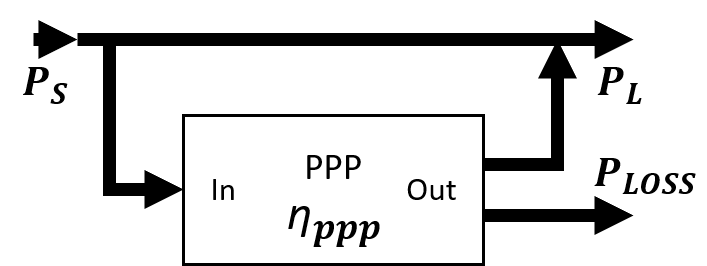Partial Power Processing

Project description
Societal and environmental concerns about the conventional power generation systems have increased the interest in sustainable power sources and in the rational use of the electric energy. In order to reduce emissions, research has thus focused on renewable energy sources, storage systems and electrification of loads during the last years. This trend is forcing grids toward more complex architectures capable of interconnecting the increasing number of decentralized energy sources and handling the increasing electric power demand. As power processing is increasing in distribution grids, reducing the losses of power conversion stages is necessary for improving grid efficiency and rational use of electrical energy.
Partial Power Processing (PPP) is a concept applied to power converters which are intended to process only a part of the total power flowing between the two power stages which it is interconnecting. Since only a part of the power is processed by PPP converters, most of the power flows directly from the input to the output without passing through a conversion stage. The PPP converter’s efficiency applies only to the part of the power that is processed by the converter, since only the processed power can be subject to conversion losses. Therefore, the system’s efficiency is not directly proportional to the converter’s efficiency like in full power processing converters, but is only partially dependent on it, allowing then for a higher overall system’s efficiency.
Moreover, the converter is subject to a reduced component stress factor (CSF) and lower rated components can be used. This extends the range of components technologies which are suitable for the application, while reducing the size of converters, resulting in more cost-effective solutions. Therefore, PPP can be the answer for the market’s desire for more cost-effective power converters solutions, allowing renewable storage and production systems to be more competitive with their non-sustainable counterparts.
This project not only aims to define whenever PPP is an advantageous solution for different applications by studying its constraints, but also to investigate improvements for both PPP architectures and converter’s topologies for a future deployment of reliable, efficient, flexible and cost-effective converters able to answer to the market’s scalability request.